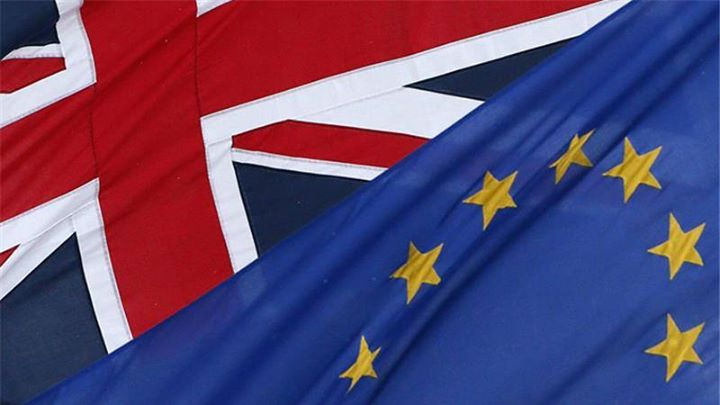By: Andrew Burchett*
With terrorism dominating mainstream media today, Western countries across the globe have seen a rise in islamophobia and increased right wing pressure to limit migration from Muslim-majority states into their home countries. In Canada, a group formed known as La Meute with the goal of stopping the spread of what they deem to be “Invasive political Islam.”[i] Other countries like Germany have had to suppress motions within their government for “Islam laws” that have the intent of regulating Islamic religious practices within the country.[ii] These trends support the findings of the European Islamophobia Report (EIR) published by the Foundation for Political, Economic, and Social Research (SETA). The report covered developments in Islamophobia in 27 European countries and found that the level of Islamophobia in fields such as employment, politics, education, and the media has been on the rise.[iii]
The rise of Islamophobia in the media has been found to contribute to increased prejudice against Muslims in tolerant societies with no history of conflict with Muslims.[iv] These results are hardly startling given the persuasive power of the media and the media’s penchant for covering negative news events. News outlets are quick to make headlines of the latest ISIS attack or bombing instead of peaceful Islamic missionary work. Sensational or crisis events are more likely to garner views than everyday, mundane reports, and as such terror attacks or Islamic extremists are more likely to be in the news than your typical Muslim. The tendency for media to report on Islamic extremists increases levels of Islamophobia because people are more likely to pay attention to negative information and develop corresponding social attitudes. When looking at liberals and conservatives, both groups were found to be equally affected by news exposure when it came to their views on Muslims.
Increasing islamophobia has also been used as an opportunity among far-right parties in Europe to gain traction and distance themselves from racist or anti-Semitic labels. By focusing on the perceived threat that Islam poses, these parties are appealing to those who feel that their national identities have been threatened by globalization and increasing multiculturalism.[v] Incorporating Islamophobia into their party platforms has also played a key role in unifying far-right parties by emphasizing a “common enemy” instead of different nationalistic ideologies.[vi] Islamophobia has also been used in the United States by conservatives seeking to paint themselves as defending traditional, Christian values and garner support.[vii] They often claim that Muslims wish to impose shariah law in the United States and that by standing up to them, they are protecting citizens’ rights to live how they choose.
Despite those who use anti-Muslim prejudice as a foundation for their party platforms or as a strategy to propel their campaigns forward, these candidates often play on irrational fears of losing national identity and spread inaccurate information. For example, Muslim migrants in France were found to quickly conform to national views regarding faith, less than 5% of Muslim migrants attended mosques on Friday and 20% embraced atheism.[viii] In regard to the argument of conservatives stating that Muslims want to impose shariah law, a survey in 2012 of American imams found no interest whatsoever in enacting shariah law and a 2008 poll in France showed that 75% of Muslims were opposed to the idea. Studies since September, 11 2001 have also come to the conclusion that religious believers and terrorists are unrelated groups of people. According to French political scientist Olivier Roy: “violent radicalization has little to do with religious practice” and a US law enforcement chief found that despite global recruitment, radicalization was typically due to local and personal factors. [ix]
[i] Smith, Craig. 2017. “In Canada, Where Muslims Are Few, Group Stirs Fear Of Islamists”. Mobile.Nytimes.Com. https://mobile.nytimes.com/2017/04/05/world/canada/la-meute-muslims-quebec.html?rref=collection%2Fsectioncollection%2Fcanada&_r=0&referer=.
[ii] Le Miere, Jason. 2017. “Angela Merkel Says Germany Won’t Pass ‘Islam Law’ Regulating Behavior Of Muslims”. Newsweek. http://www.newsweek.com/germany-islam-law-angela-merkel-578915.
[iii] “Islamophobia New Threat In Europe, Recent Report Reveals”. 2017. Dailysabah. https://www.dailysabah.com/eu-affairs/2017/03/23/islamophobia-new-threat-in-europe-recent-report-reveals.
[iv] Shaver, John H., Chris G. Sibley, Danny Osborne, and Joseph Bulbulia. 2017. “News Exposure Predicts Anti-Muslim Prejudice”. PLOS ONE 12 (3): e0174606. doi:10.1371/journal.pone.0174606.
[v] Hafez, Farid. 2017. “Shifting Borders: Islamophobia As Common Ground For Building Pan-European Right-Wing Unity.”. Patterns Of Prejudice 48 (5). doi:10.1080/0031322X.2014.965877.
[vi] Ibid.
[vii] Mounk, Yascha. 2017. “Pitchfork Politics.”. Foreign Affairs 93 (5): 27-36.
[viii] Sajoo, Amyn B. 2014. “Fitting Islamophobia Into An Historical Pattern”. Journal Of Muslim Minority Affairs 34 (2): 191-196. doi:10.1080/13602004.2014.912862.
[ix] Ibid.
*Disclaimer: The content contained in the following material is the sole ownership of the author and does not reflect the views of the Towson University Journal of International Affairs nor Towson University in any respect whatsoever







